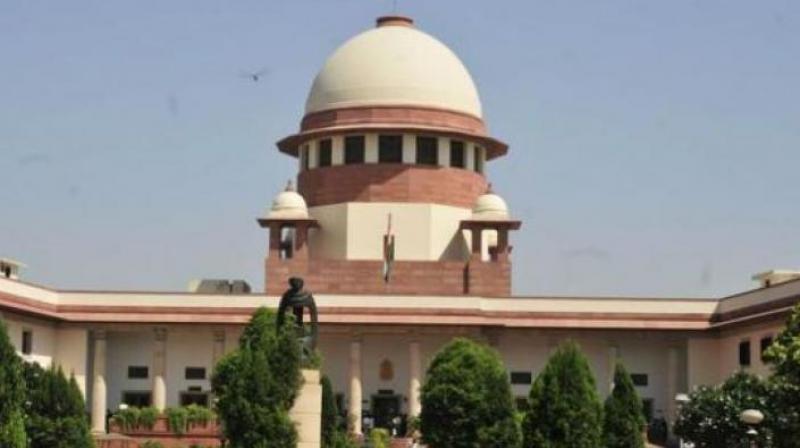Supreme Court reserves verdict on Cauvery authority
The Court asked the AG to make necessary changes in the scheme and to submit to revised final scheme.

New Delhi: The Supreme Court on Thursday reserved its verdict on the finalisation of the Centre’s ‘scheme’ on setting up of the Cauvery Management Board/Authority for allocation and distribution of water among the States of Karnataka, Tamil Nadu, Kerala and Union Territory of Puducherry.
On Wednesday the Centre informed the court that it was agreeable for the name Cauvery Managemenr Board to implement the February 16 judgment. The Court asked the AG to make necessary changes in the scheme and to submit to revised final scheme.
However, during the resumed hearing on Thursday, Attorney General K.K. Venugopal submitted before a three-judge Bench of Chief Justice Dipak Misra and Justices A.M. Kanwilkar and D.Y. Chandrachud that instead of Cauvery Water Management Board, the Centre has decided to name it as Cauvery Water Management Authority.
e said there is no change in the composition or powers and in fact Authority will have more powers than a Board. The headquarters will be in Delhi and the Authority would exercise full control and it can seek the help of Centre if need arises.The CJI told the counsel that it would pass orders in respect of the contempt plea of Tamil Nadu as well as on the 'scheme’ either on Friday or on May 22/23. The CJI made it clear that the order would be strictly in terms of the February 16 judgment.
Senior counsel Shekar Naphade, along with senior counsel Rakesh Dwivedi and advocate G. Umapathy, submitted that their worry was that change of name should not dilute the powers of the Authority. Mr. Naphade said some how from the beginning the Centre was not in favour of Board.
Senior counsel Nambiar, appearing for Puducherry suggested that unless the authority is vested with full control over the dams, mere supervision on water release would not help the riparian States.
Senior counsel Shyam Divan and counsel Mohan Katarki for Karnataka objected to a clause in the mandating the States to submit to the Authority 'indents’ every month specifying the storage position in the reservoirs and the requirements of water for release for the use of Karnataka.
Mr. Katarki said the submission of 'indents’ could be confined only to 'distress years’ and not every year. This was strongly opposed by Mr. Naphade, who said for Karnataka every year is a distress year and they would not release water to Tamil nadu at all if this suggestion was accepted.

